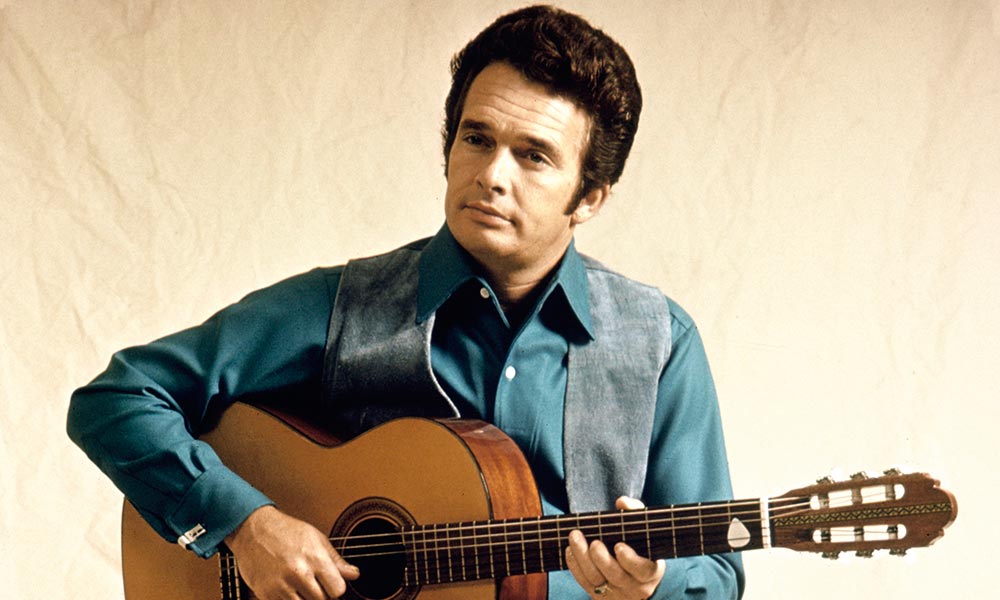
Merle Haggard poured his own life experience into the song that gave him a new signature at the end of the 60s. When he wrote “Okie From Muskogee,” as he told The Boot in 2010, the peerless and fearless country artist was protesting about protesters.
‘I knew what it was like to have freedom taken away’
“When I was in prison, I knew what it was like to have freedom taken away,” he said. “Freedom is everything. During Vietnam, there were all kinds of protests. Here were these [servicemen] going over there and dying for a cause – we don’t even know what it was really all about. And here are these young kids, that were free, bitching about it. There’s something wrong with that and with [disparaging] those poor guys.
“We were in a wonderful time in America and music was in a wonderful place. America was at its peak and what the hell did these kids have to complain about? These soldiers were giving up their freedom and lives to make sure others could stay free. I wrote the song to support those soldiers.”
His own corner of country history
The challenges of Haggard’s younger days, during which he served almost three years in San Quentin prison for armed robbery in his early 20s, meant that he didn’t get onto the country charts until he was already 26, at the very end of 1963. But after a substantial duet hit with Bonnie Owens in 1965, “(My Friends Are Gonna Be) Strangers,” he took that name and gave it to his band. Thus, Merle Haggard and the Strangers went about claiming their own corner of country music history.
Haggard accrued seven No.1 country hits in less than two and a half years, including songs now woven into the fabric of country such as “The Bottle Let Me Down,” “Branded Man,” “Sing Me Back Home,” and “Mama Tried.” Amid Nashville’s glitz, working-class people saw and heard a man they could truly identify as one of them: an artist who not only wrote and recorded some of the most enduring songs in all of country, but who wore his heart on his sleeve, with such plain-speaking releases as “I Take A Lot Of Pride In What I Am” and “Workin’ Man Blues.”
‘I had never had this strong of a reaction’
Haggard wrote “Okie From Muskogee” with the Strangers’ drummer, Eddie Burns, choosing the Oklahoma location (some 50 miles south-east of Tulsa) as a flagship of small-town America. Merle himself was from Oildale, close to Bakersfield, the California city that he would help to make synonymous with a rootsy country style far removed from the heavily produced Nashville sound of the day. But Haggard’s bloodline ran straight to the place he was singing about.
His parents were true “Okies,” from Checotah in McIntosh Country, Oklahoma, some 20 miles south-west of Muskogee. If he and Burns had any notion of satirizing the views of a sleepy American town and the things they might disapprove of, the early reaction when they played “Okie From Muskogee” let them know that they had struck a much more serious chord.
When Merle and the Strangers performed the song just after its completion, at a gig in an officers’ club in Fort Bragg, North Carolina, the place erupted – in a good way. “Soldiers started comin’ after me on the stage,” Haggard remembered. “I didn’t know what was going to happen next until they took the mic and said we’d have to do it again before they’d let us go. I had never had this strong of a reaction before.”
“The main message is about pride”
Easily misunderstood, “Okie From Muskogee” was neither redneck nor reactionary, but it did polarise opinion about an artist who, as he argued, “didn’t put the record out to reprimand or anything.
“It’s just a song,” Haggard continued. “I wrote something that I thought said something a lot of people would like to say.” Later, he told Quarter Notes magazine: “‘Okie’ made me appear to be a person who was a lot more narrow-minded, possibly, than I really am.”
Released on September 29, 1969, “Okie From Muskogee” entered Billboard’s country chart on October 11, and by the November 15 listing, it was starting a month at No.1. Perhaps unsurprisingly, it didn’t make a full pop crossover, stalling at No.41. But its impact was so immediate that the band travelled to Muskogee’s Civic Centre to record a live album in that very week of its chart debut. After a set featuring many of Haggard’s best-loved songs to that point, he finished with the song named after the town.
“The main message is about pride,” Haggard said of the track in 2012, speaking to The Music Hall magazine. “My father was an Okie from Muskogee when ‘Okie’ was considered a four-letter word. I think it became an anthem for people who were not being noticed or recognised in any way – the silent majority. It brought them pride. And today the song still speaks to conditions going on in this world.”
Listen to the best of Merle Haggard on Apple Music and Spotify.
source https://www.udiscovermusic.com/stories/okie-from-muskogee-the-story-behind-merle-haggards-country-classic/

